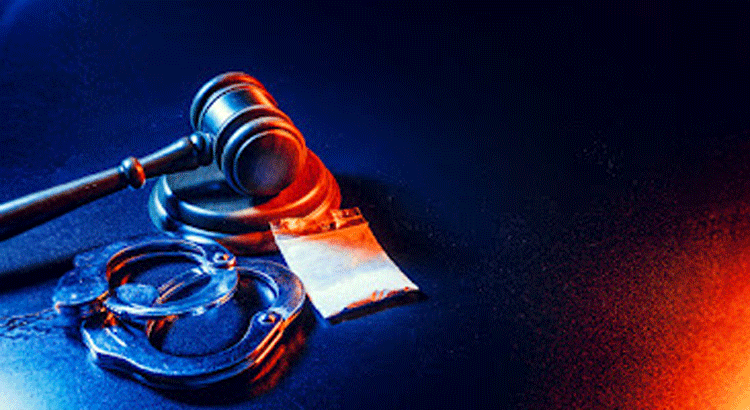Key Takeaways:
- Specialization is Key: Choose a lawyer who specializes in drug offenses for their deep legal understanding and established courtroom relationships.
- Track Record Matters: Review a lawyer’s past cases to gauge their effectiveness and experience in handling similar charges.
Effective Communication is Essential: Ensure your lawyer communicates clearly and promptly, as this greatly influences your understanding and stress levels during the case.
When facing drug charges, selecting the right lawyer is not just a necessary step — it’s arguably the most critical decision you will make in navigating the legal system. The outcome of your case can have lasting repercussions on your life, affecting everything from your freedom to future employment opportunities. Therefore, choosing a lawyer who is experienced, competent, and trustworthy is paramount.
This guide aims to walk you through the crucial aspects of selecting a drug offence lawyer, offering detailed insights into the key factors you must consider to ensure that your legal representation possesses the necessary expertise and strategy to manage your case effectively.
1. Look For Specialization
Selecting a drug offence lawyer is crucial because these cases often involve complex legal issues and severe penalties. Specialists will be more familiar with nuances in drug law and likely have established relationships with prosecutors and judges in this area, which can be advantageous in your defence.
2. Check Their Track Record
A lawyer’s track record can give you insight into their expertise and success in similar cases. Look for details such as the types of drug crime charges they have handled, their win/loss ratio, and the outcomes of these cases. This information can help you gauge how well the lawyer might manage your case.
3. Assess Their Reputation
A reputable lawyer is often recognized by their peers and clients for their skills and ethical standards. Check professional directories, online reviews, and legal forums to see what others say about their professionalism, conduct, and client satisfaction. Awards and recognitions from legal associations can also indicate a lawyer’s standing in the field.
4. Evaluate Communication Skills
It’s crucial that your lawyer explains complex legal terms and processes clearly and is responsive to your communications. During initial consultations, note whether the lawyer listens to your concerns attentively and responds thoughtfully. Their ability to communicate effectively can significantly impact your understanding and anxiety levels throughout the case.
5. Review Their Fees
Understanding how you will be charged helps avoid surprises. Some lawyers charge by the hour, others have a flat fee, and some might work on a contingency basis, depending on the nature of the case. Also, inquire about other potential costs like court fees, administrative fees, and expenses for expert witnesses.
6. Look For Local Experience
A lawyer familiar with your local courts and legal environment will have insights that could benefit your case. They will know the tendencies of local judges and the strategies of local prosecutors, which can be crucial in planning your defence or negotiating a plea deal.
7. Seek Personal Compatibility
Working with someone you trust and feel comfortable with can mitigate the stress of a legal case. Personal compatibility includes factors like trust, respect, and your comfort level with the lawyer’s approach and demeanour.
8. Ask About Their Team
Many lawyers work with a team of associates, paralegals, and other professionals. Knowing who will handle different aspects of your drug charges can help you understand the level of attention your case will receive, and the expertise brought to various facets of your case management.

9. Inquire About Strategies
Effective defence strategies vary significantly in drug crime charges, from challenging the legality of a drug search and seizure to negotiating plea deals or proving mitigating circumstances. A skilled lawyer should be able to outline several potential strategies and adapt as your case evolves.
10. Request References
While confidentiality can sometimes limit the details a lawyer can share about past cases, they can provide testimonials or references from former clients who can speak to the lawyer’s effectiveness and client service. Hearing directly from past clients can provide reassurance and a more personalized view of what working with the lawyer might be like.
11. Check For Disciplinary History
Before finalizing your decision, check whether the lawyer has any past disciplinary actions against them. This information can usually be found on the state’s Bar Association website. A history of disciplinary actions should be a red flag and could indicate professionalism issues.
12. Availability And Accessibility
Your case needs timely and attentive responses. Ensure that the lawyer you choose can handle your drug cases effectively. A lawyer who is too busy might not provide the focus your case requires. Ask about their current caseload and ensure they are available to attend to your needs.
13. Cultural And Language Compatibility
If English is not your first language, or if you have specific cultural needs, it might be beneficial to find a lawyer who understands these aspects. Effective communication is crucial in legal defence, and having a lawyer who speaks your language or understands your culture can facilitate better understanding and comfort.
14. Technological Competence
In today’s digital age, being technologically competent is increasingly important. Ensure your lawyer utilizes all the necessary legal technologies for efficient case management, evidence handling, and communication. This can also include their ability to handle virtual meetings, digital filings, and other online legal procedures.
Conclusion
By methodically evaluating these factors, you can make an informed decision that maximizes your chances of achieving a favourable outcome. Remember, the right legal representation is not just about navigating the present; it’s about protecting your future. Taking the time to choose the best lawyer for your needs is an investment in your peace of mind and a crucial step towards securing your rights and freedom.









